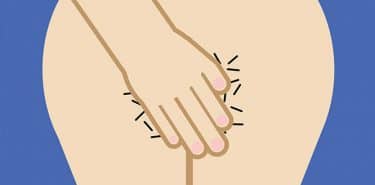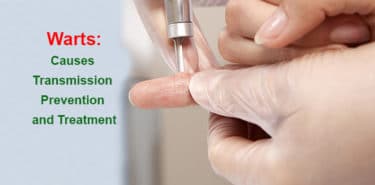Gonorrhea is a bacterial infection disease that is sexually transmitted to both men and women. May cause infections in genital area, anus, throat and joints. The most common symptoms in men are burning sensation in urination and white, yellow or green discharge from the penis. In women, symptoms are urinary tract and cervical inflammation. Infection can pass from a pregnant woman to her baby and, if left untreated, can cause permanent blindness in the baby. The disease is diagnosed by urine and culture assays. Only antibiotics are used for treatment. It is very important to make sure that the use of a condom is sexually transmitted and that the sexual partner does not carry this disease. If it is not treated early, it can lead to serious complications such as AIDS and infertility.
Table of Contents
What is gonorrhea?
Gonorrhea is a sexually transmitted bacterial infection may cause serius health risks. If remains untreated, it can become a dangerous disease. Anyone who is sexually active can get this disease. It is more common especially in young people aged 15-24 and its prevalence increasing throughout the world. Unprotected sexual intercourse, more than one sexual partner and other sexually transmitted diseases are more common.
Causes of gonorrhea
The disease is caused by bacteria called Neisseria gonorrhoeae. It is transmitted through vaginal, anal or oral intercourse. The bacterium usually settles in wet areas such as the genital area, the anus and the throat. It is more likely to be associated with sexually transmitted chlamydia, another bacterium. This causes cervical inflammation.
How is gonorrhea transmitted?
The gonorrhea is contagious until completely cured and can be transmitted to another person by unprotected vaginal, anal or oral sex. Touching, kissing is enough to infect. In addition, a pregnant woman carrying this disease may give infant infection during delivery.
Because bacteria cannot survive long outside of the human body, they are not spread by sharing swimming pools, toilet seat or bath, towels, cups, plates or cutlery.
Symptoms of Gonorrhea
Symptoms of gonorrhea in women
- Increased unusual vaginal discharge, thin or watery, greenish or yellowish
- Pain or burning sensation when urinating
- Vaginal bleeding between menstrual periods
- Heavy menstrual periods in women
- Pain or tenderness in the lower abdomen
- Feeling pain during sexual intercourse
- Bleeding after sexual intercourse
Symptoms of gonorrhea in men
- An unusual white, yellowish or greenish discharge from the tip of the penis
- Pain or burning sensation when urinating
- Inflammation of the foreskin (swelling)
- Pain and tenderness in the testicles, rarely
Symptoms of gonorrhea usually develop about 2 weeks after the individual infected by bacterium, but sometimes it does not appear at all. One out of every 10 men suffering from this disease and almost half of the women may not have any symptoms. It is also usually mild, even if a woman has symptoms, and can be confused with a bladder or vaginal infection.

However, although there are no symptoms in both gender, they are more likely to develop serious complications from infection. Therefore, it is important for individuals who are not monogamous to have a gonorrhea test every year. Gonorrhea pictures: 1, 2, 3
Infection in the anus, throat or eyes
Both men and women can develop infection in the anus, throat or eyes of infected areas of the sperm or vaginal fluid, as a result of anal or oral sex without protection.
- Eye infection (conjunctivitis) can cause irritation, pain, swelling, discharge and sensitivity to light.
- Infection in the anus may cause itching, bleeding, pain, or discharge.
- Infections in the throat may cause sore throat, swallowing difficulties, and swollen lymph nodes.
In addition, if one or more joints are infected by bacteria, the affected area may be hot, red, swollen, and extremely painful.
Diagnosis of Gonorrhea
The only way to diagnose this disease is to perform urine or culture analysis. In men, the diagnosis is made by the discharge and urethra (urine tube) culture and in women by cervix (vagina) and vagina cultures.
In addition, the throat and rectum (anus) culture is also applied to the both gender. If the person suspects the possibility of gonorrhea, even if the symptoms are not seen, he/she should not neglect to take the test. If a test is performed about one week after sexual intercourse, a more reliable result is obtained.
Early detection of gonorrhea is very important. Otherwise, other serious health problems caused by the disease may be experienced and their treatment is either none or very difficult.
Treatment of Gonorrhea
The disease is usually treated with antibiotics. Medications should be taken at the doctor’s recommended dosage and time and medication should not be discontinued if not recommended by doctor even though the symptoms are discontinued. In addition, the patient should not let his/her partner use his/her medication without consulting his doctor.
Antibiotics are usually recommended by the doctor when:
- If definite diagnosis is made according to the results of the assays
- If person has a high risk of gonorrhea, results of assay are given before finalization.
- If a spouse is diagnosed with gonorrhea
Usually the treatment includes an antibiotic injection followed by an antibiotic tablet. Optionally, another antibiotic tablet may be prescribed instead of injection.(1)
The current symptoms usually heal in a few days, but it may take up to 2 weeks for the pain in the pelvis (pelvis) or the testicles to completely disappear. Bleeding among menstrual periods can get better until the next period. One to two weeks after treatment, the patient may be tested for control to see if the patient is completely free of infection.
In order not to infect others, it is very important not to have sexual intercourse until getting the final positive result of treatment. If a person does not receive the necessary preventive actions despite successful treatment, this disease can be caught again and again. Despite treatment, symptoms do not improve or if it is thought to be infected again, individuals should go to a doctor and more extensive tests should be done to check other problems.(2)
Complications of the Gonorrhea
If the treatment of gonorrhea is delayed or neglected, it can cause serious problems. For example, if the disease spreads to the bloodstream, it can spread to other parts of the body, including the joints. Very rarely, if the brain membrane is inflamed, the person may have meningitis. In addition, people who suffer from gonorrhea are at an increased risk of catching the HIV virus that causes AIDS.(3)
Complications seen in women
- Causes severe pelvic pain and fever
- Ectopic pregnancy
- Infertility
- Risk of miscarriage during pregnancy or premature baby
- Infection of a new-born baby
Complications seen in men
- Painful infection in testicles
- Painful infection in the prostate
- Infertility
Herbal treatment of gonorrhea
- Flax seed is boiled and the water is filtered and drink 1 cup every day
- Licorice is boiled and the water is filtered and drink 1 cup every day
- A cup of boiled water is poured into 4 grams of wicker root, to be left to get brewed for 10 minutes and then drink 1 cup every day.
- 20 grams of carrot seeds are eaten each day during 20 days
- Turnip seeds are pounded in a mortar, then mixed with honey to get paste like texture then eat.
- 10 grams of cucumber seed is ground into a powder, then mixed with coffee to drink on an empty stomach
- Purslane and parsley are boiled in water. Women should make a steam bath in the genital area, while men should filter and drink water.
- It is useful to rub the body with vinegar. This process can be repeated in every hour.
- Horseradish is wrapped on the painful area.
Herbal therapy can only help to reduce the effects of symptoms and speed up the treatment process. No herbal treatment alone does not cure the disease.(4)
Therefore, those who suspect that they can carry this disease should definitely go to a doctor and not use the recommended herbal treatments without consulting their doctor.
Gonorrhea in pregnant
The routine culture tests should be performed during pregnancy, pregnant individuals should be treated if the tests results are positive. If the baby is infected at birth, it can cause eye inflammations, arthritis, or very serious sepsis (blood poisoning).(5)
Treating the babies infected by Gonorrhea
A baby whose mother suffers from gonorrhea is given antibiotics immediately after birth. This does not harm the baby and helps prevent other complications of the disease, especially blindness and eye inflammation. There is a risk of progressive and permanent visual disturbance if the baby is not treated immediately with antibiotics. In addition to this, the baby would also be vulnerable to other complications.
Prevention ways from Gonorrhea
- Definetely use condoms during vaginal or anal sex
- Monogamy
- Avoid sexual intercourse if there are any signs of infection or treatment of gonorrhea
- Avoiding sexual intercourse until the illness is completed
Proper condom use
- Condoms are disposable, discard after use.
- Check the expiration date before purchase.
- Store in cool, dark conditions as there is a risk of hot environment deterioration.
- Check that the condom is unbroken or thorn after putting it on.
- Do not contact the penis and vagina without wearing a condom.
- Put it on when the penis is erected.
- First, place it on the tip of the penis, then roll it to the root of the penis.
- Cover the penis completely with the condom outside the tip of the condom.
- Do not use petroleum jelly, lotion or grease for the preservation of condoms because they reduce the condom’s protective texture. The risk of rupture increases during intercourse.
- If you are allergic to latex preservatives, use a condom made of polyurethane.
Day by day, it is difficult to treat gonorrhea because the resistance of the bacteria causing the disease to the antibiotics increases. In order to prevent the infection and spread of the disease, prevention methods should be taken seriously and condoms should be used during sexual intercourse.
References: 1- Gonorrhea, 2- Symptoms of gonorrhoea, 3- Treatmant of Gonorrhea




